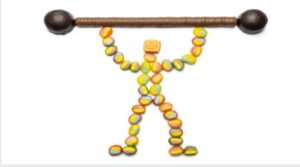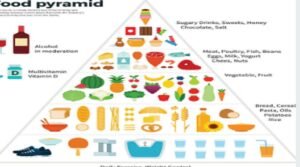Grains for Gains | Do You NEED Carbs?
Out of all 3 macronutrients (protein, fats, and carbs), carbohydrates are perhaps the most frequently misunderstood nutrient in food.
It has been given a bad name, but is it really as bad as some nutritional trends claim it to be?
In this article, we’re going to tell you the most important considerations about carbs, which will allow you to make them a functional part of your nutritional plan.
Hint: Carbs are not demonic
Essential Nutrients

As you probably know, food contains essential nutrients, which the body needs to sustain healthy functioning, but cannot produce on its own.
Those essential nutrients are namely fatty acids, as well as amino acids, which come from dietary fats and dietary protein, respectively.
Amino & fatty acids regulate a number of functions and if consumed in suboptimal amounts, they can be the reason for suboptimal recovery and hormonal functioning.
HOWEVER… Out of the 3 macronutrients, only protein and fats are essential, meaning that carbohydrates are not really essential.
In other words, if the body needs glucose but doesn’t get it from food, it can produce its own, in a process called “Gluconeogenesis”.
Though non-essential, however, carbohydrates appear to be important for the goal of maximizing athletic performance.
The Glycogen Energy System

During intense physical performance, we use 3 main sources of energy to sustain muscular contraction:
- ATP (Adenosine triphosphate)
- Creatine
- Muscle glycogen
In essence, the main energy source is ATP, but since its stores are relatively limited and get depleted in about 5 seconds, the body needs alternative fuel sources, to regenerate that ATP.
As mentioned above, creatine and glycogen are the other two energy sources, which the body uses to regenerate ATP and continue the muscular activity.
Glycogen is basically the stored form of blood glucose, which in turn, is the end product of carbohydrate metabolism.
We store glycogen in two places – The muscles and the liver, with the first one being the storage with bigger capacity.
During the prolonged, intense muscular activity, the body quickly uses up ATP and creatine and starts utilizing muscle glycogen.
What this means for you, is that if your glycogen levels are low, your athletic performance output will suffer.
Modern-day trends like the keto diet suggest that you don’t really need carbs, but facts are facts – Glycogen is the only source of fuel that can be broken down into energy rapidly enough.
This is very important when the task at hand is to MAXIMIZE your output while training.
In summary, your body doesn’t really consider carbs essential, but they are the body’s preferred energy source and the best energy source for intense training activity.
Best Sources Of Carbs

Now, of course, not all carbohydrates are the same and some may even be bad for you.
Our modern-day nutrition consists of many processed foods that contain refined carbohydrates.
Those refined carbohydrates have a really simple structure and the body digests them rapidly.
This, in turn, leads to sudden spikes and drops in blood glucose, often referred to as “sugar crashes”.
For this exact reason, your best bet is to rely on natural, unprocessed carb sources.
Here is a list of our top 10 best carb sources:
- White rice
- Brown rice
- Fruits
- Starchy vegetables
- Wholegrain bread
- Wholegrain pasta
- Sweet potatoes
- Regular potatoes
- Oats
- Quinoa
Now, not all of the above will suit your taste buds, which is why you are best off experimenting and finding out the foods you like and can eat consistently.
Once you find those, make them a part of your regular meals and you are well off on your way to optimal physical performance!
Conclusion
Unlike protein and fat, carbohydrates are non-essential for the body, BUT they are the preferred and most efficient, rapid energy source for intense muscular activity.
This is why, including a reasonable amount of carbohydrates in your daily nutrition, is important!
Ultimately you should rely on whole food, unprocessed carbohydrate sources, such as rice, quinoa, potatoes, fruits, and starchy vegetables.
Do you have questions about carbs? Feel free to drop them below!











